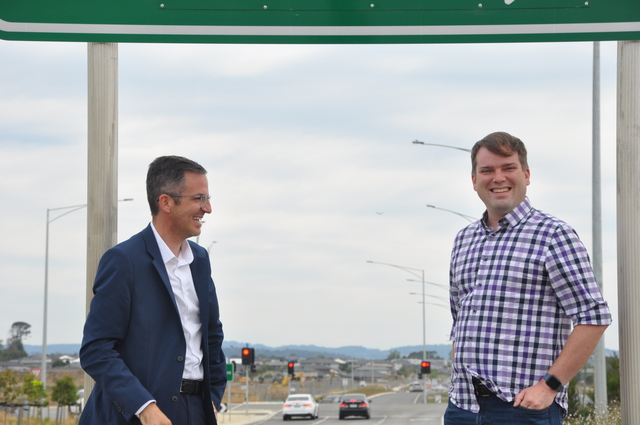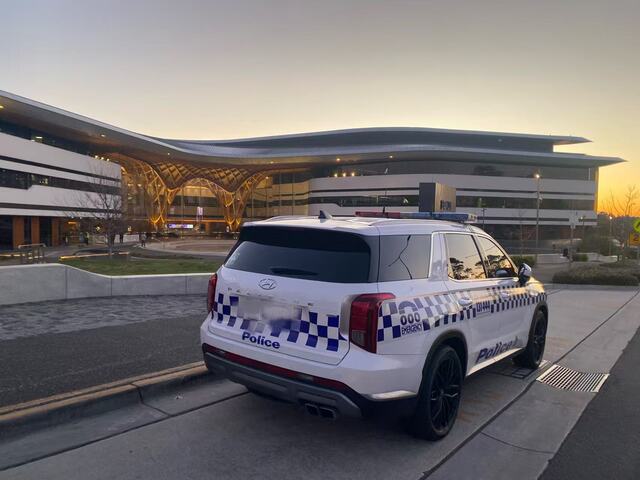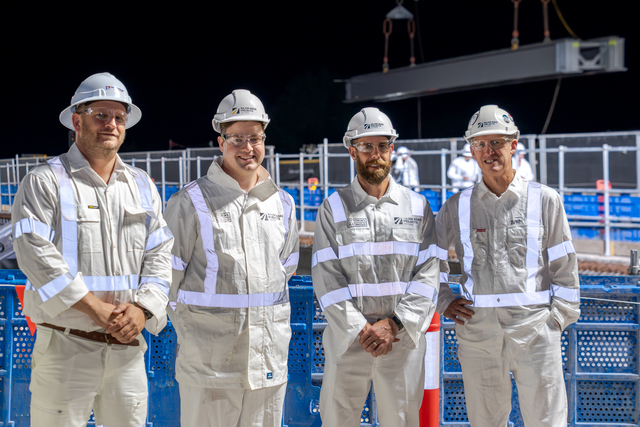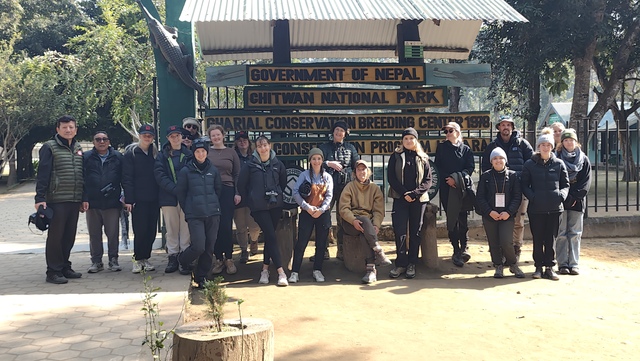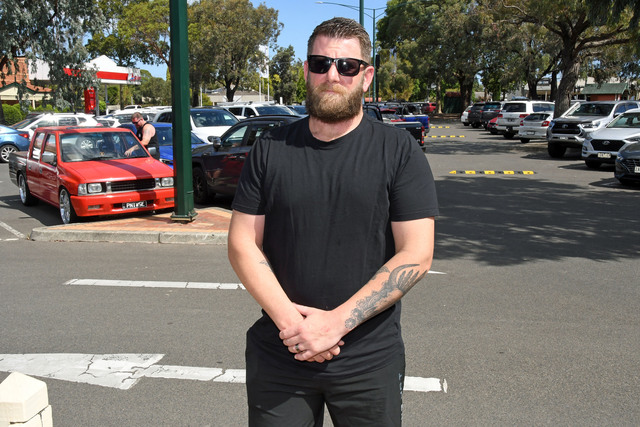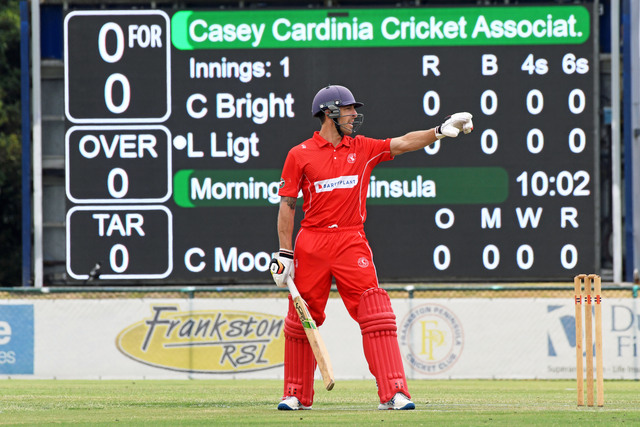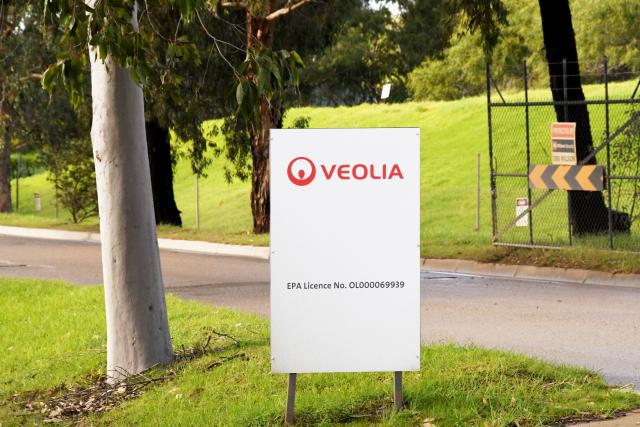Casey councillors have cut back a proposal to give the CEO authority to sign off on contracts worth up to $15 million, with councillors voting instead to cap the delegation at $5 million.
In a heated debate at a 19 August council meeting, councillors exchanged their perspectives on the transparency of decision-making, the organisational efficiency, and the legacy of Operation Sandon.
The Instrument of Delegation to Chief Executive Officer, a long-standing governance policy at the centre of the debate, allows councillors to delegate certain powers and functions to the CEO, without requiring direct approval from the councillors.
The original proposed version by council officers recommended a $15 million contract threshold, which means Mr Patterson can sign off on a contract under $15 million without referring to councillors.
According to the council officer report, the delegation only empowers the CEO to authorise the expenditure and delivery of projects that have already been approved through the councillors’ budget decision-making process.
The justification for the significant sum of $15 million is the City of Casey’s large population, and accordingly, expansive capital works programs.
To ensure transparency, all contracts awarded over $5 million and signed by the CEO under delegation are currently listed in quarterly reports.
As a result of this week’s council decision, the council will now implement monthly reporting of decisions made over $1 million under the delegation.
The $15 million delegation threshold has been around for about four years.
Back in 2019, before the then-councillors were dismissed during an IBAC Operation Sandon investigation, the delegation threshold was $1 million, a fairly common number endorsed at many of the councils in Victoria.
In 2020, the state-appointed administrators increased it to $5 million in the first year they took over, and to $15 million in the second year in 2021.
The increase in the delegation threshold is said to be one of the reasons the Casey Council Meetings have been shorter than the ones in the pre-administration era. Many items in regard to the contracts have been signed off on without coming to the meetings.
The $15 million number sparked controversy in the community before the August council meeting started.
Casey Residents & Ratepayers Association (CRRA) vice president Anthony Tassone told Star News that the delegation to the CEO of allowing expenditure of up to $15 million without prior approval of Councillors was excessive when compared to other Councils.
For example, the City of Melbourne only has a delegation of up to $1 million, and the City of Wyndham, which has a higher capital works budget than Casey, has a delegation of only $2.5 million.
“The officer report in the council papers does not give any compelling reasons why this level of delegation is necessary and how a lower threshold would impede senior management from carrying out their duties,” he said.
Casey mayor Stefan Koomen said councillors were aware of resident concerns that the previous $15 million threshold was “too high and inconsistent” with other councils.
“As a Council, we’ve listened to the community and believe we have struck the right balance between accountability and efficiency.
“By reducing the CEO’s delegation from $15 million to $5 million, we’re ensuring stronger oversight of major contracts.
“We’re also introducing monthly reporting on all contracts over $1 million, so the community can see where money is being spent.
“This is about keeping things transparent, responsive and in line with what our residents expect.”
At the meeting, Councillor Scott Dowling was the only one supporting the original $15 million delegation.
Cr Anthony Walter soon raised an alternative motion to lower the delegation to $5 million.
Cr Walter first explained that the CEO delegation is a mechanism that allows the organisation to operate efficiently and deliver on the priorities they have set as a council.
“It ensures the contracts for capital works such as community centres, roads and recreation reserves can be awarded quickly, securing price certainty and avoiding delays that would otherwise cost the community more,” he said.
He then said it was a reasonable reduction. He would not suggest going below $5 million.
“Every contract awarded under delegation is subject to rigorous checks, including probity audits for procurements over $10 million. These controls ensure that decisions are made transparently and in alignment with our strategic objectives,” he said.
“Reducing the delegation drastically would not only slow down project timelines but also shift more decisions into closed council meetings. This would limit public visibility and increase the risk of conflicts of interest.
“It would also burden our meeting agendas, taking time away from strategic discussions and increasing administrative overheads.”
Cr Gary Rowe seconded the motion and brought up that the previous limit was set following Operation Sandon with a clear intent to strengthen governance and reduce risks.
He pointed out that a reduction to $5 million would add one contract-related item per meeting, and a reduction to $1.1 million would add three to four per meeting, which he said would significantly increase the workload of councillors and council officers.
Cr Dave Perry pushed for a lower $2 million cap, warning the higher figure “undermines financial accountability by allowing major decisions without council review” and noting most other growth councils set the limit at $1 million to $2 million.
“It contradicts best practice in public sector governance, where large contracts require select collective scrutiny,” he said.
He said that the increase to $15 million was huge and unprecedented in the sector.
“Administrators were not elected and weren’t perceived to be accountable to our ratepayers. Now we are here. It is our duty to rebuild community trust in local government,” he said.
“Operation Sandon, which was based in Casey, showed the dangers of leaving big contracts unchecked…
“I agree, yes, spending is guided by budget, but it’s a high-level document showing what money should be spent on. Lowering the threshold means everyone knows who gets council contracts, and we can check any conflicts of interest when they come into the chamber.
“The $2 million delegation is sensible. The CEO still has plenty of scope to handle day-to-day work, and we keep important decisions in front of the council and, by extension, the Casey community.”
Cr Lynette Pereira, who was also a councillor in 2008-2012, was the only one backing up Cr Perry’s $2 million delegation stance.
“We’ve been elected. We’re not Monitors. Monitors have different guidelines that they follow. We’ve been elected by our residents to actually provide proper oversight. The higher the delegation, the less the oversight, because things just don’t come to us,” she said.
“When something goes wrong, the public’s not going to say where the CEO was. They’re going to say where the councillors were. It does fall with us at the end of the day…
“We might have some extra reports coming in. The level of reports we get with this council is nothing like what I used to get in my last term.”
Cr Kim Ross pointed out that the CEO delegation document was reviewed every 12 months.
In the end, the alternative motion was passed 10 to 2, with councillors agreeing the CEO can approve contracts up to $5 million.
CRRA vice president Mr Tassone said they believe the amended $5 million motion is far more reasonable than the excessive $15 million level, but must be underpinned by clear, regular and transparent reporting.
“The S5 instrument should be explicit that the delegation is only to be used against approved budget items,” he said.
“There has not been a justification to residents as to why the delegation threshold was increased from $1m to $5m in 2020, let alone $5m to $15m in 2021. We also believe there must be an annual review of the delegation going forward, which the administrators failed to do after 2021.
“The administrators were installed amid allegations of corruption and backroom deals by some elected councillors and were meant to help safeguard our public interest. Instead, they handed over the chequebook and more power to the bureaucracy with fewer questions asked.”
Jill Nambu, a concerned local, said the high delegation gave the CEO too much power.
She also said people here just know very little about all the contractors that have been doing roadworks in the area.
“They can choose contractors that we don’t like. If people are deciding everything together, we may know more about the contractors, their previous history, or just to make a better decision that the community wants,” she said.
“Councillors are supposed to represent our voice so that this way, things are chosen based on what the community wants, not what some CEO thinks is appropriate.”
Amanjit Gill, who runs the Facebook vigilante account City of Casey Transparency Advocate, said registering contracts over $1 million in the monthly council meeting is welcomed, but that doesn’t reduce all the corruption risks associated with procurement.
“IBAC specifically singled out procurement as a risk area for corruption in local government. And, increasing the frequency of reporting is helpful, but it’s not a complete solution,” she said.
“And neither are the other things they do, which are a register of tenders and a procurement policy, but none of those is a solution.
“In fact, there’s no solution to corruption. All we have is a collection of measures.
“If we have the opportunity to add an additional layer of protection by having a lower delegation limit, then why not do that?”
Ms Gill also pointed out that a New South Wales Independent Commission Against Corruption newsletter from May 2017, titled ’Delegations of authority: know the pitfalls’, said high levels of discretion assigned to a single individual can result in an end-to-end controlling process, which can create an unacceptable risk of partiality, bribery, or other corruption.
“It also points out that if the delegation limit is too low, it’s onerous because it creates too many things that need to be removed, so the need is balance, to have a limit that’s high enough for the council to be able to do its job, but not so high that that it moves transparency and accountability,” she said.
When inquired, City of Casey Manager Communications and Corporate Governance Chloe Casey explained the reasons why the organisation initially recommended a $15 million delegation in a more detailed manner.
“The $15 million contract delegation threshold was introduced during the administration period and was retained throughout that time. This threshold was determined based on operational efficiency needs, the volume and scale of capital works in growth areas, and the need to avoid delays in delivering projects such as large community hubs and recreation reserve developments,“ she said.
“Benchmarking was undertaken during the current delegation review, but it was ultimately determined that Casey’s unique growth profile and infrastructure delivery demands warranted a tailored approach. While some other Victorian Councils may operate with lower thresholds, Casey’s scale and complexity necessitate a higher delegation to maintain service delivery and avoid delays.“

